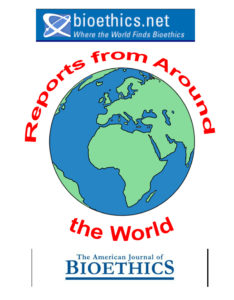 by Father Marcin Ferdynus
by Father Marcin Ferdynus
The COVID-19 pandemic is unprecedented in scope and beyond anything we have ever experienced. A global plague of unparalleled proportions resulting in health, economic, social and religious consequences, the pandemic has revealed deficiencies in global and domestic health institutions and systems. Countries around the world have faced the difficult task of caring for the health of citizens and securing their basic needs. Many European Union countries as well as public health institutions failed in the first phase of the pandemic. Nevertheless, some governments, such as the Polish government, have taken swift and decisive action to limit the spread of the virus. State borders were closed and social distancing and self-isolation (“stay at home”) were introduced. Mandatory wearing of face masks and distance learning in schools and universities have also been implemented. The number of people attending church services was limited to five people. Quarantine was introduced for the sick, suspected cases and for those who crossed the state border in the first phase of the epidemic. Special hospitals have been designated for patients with COVID-19. The Polish government has introduced many other detailed guidelines for preventive measures that have been recommended by WHO. The vast majority of Polish people accepted and followed the recommendations of the Minister of Health and the Prime Minister.
One of the most effective ways to fight the virus is social isolation throughout the country. Social isolation has caused the suspension of many enterprises and institutions. The state budget has been severely depleted. Many people have lost their jobs. Nevertheless, the decisive actions of the government contributed to the “flattening of the curve”. Well-known Polish virologist Włodziemierz Gut stated that we must make a choice: either we want to have more people who will survive the pandemic but they will become poorer or we want to have more people who will die and the society will remain a bit richer. The first option was decided upon. It seems that thanks to immediate sanitary measures, Poland is coping with the COVID-19 pandemic better than the United States and other European Union countries, such as Italy, Spain and Germany.
The global pandemic has revealed many other systemic weaknesses in Poland. It showed not only the inefficiency of the Polish economic and educational system but also the weakness of the health service. In the first phase of the epidemic, hospitals lacked tests, masks, gloves and respirators. In religious life, especially in the Catholic Church in Poland, many practices rarely occurred. Limiting the number of liturgy participants caused the churches to become empty. Some bishops in Poland have banned public services.
The decision to drastically limit churchgoers was met with great disapproval from some people. Receiving holy communion in the hand, recommended by the church authorities, was met with criticism in many cases. There were doctrinal errors that touched on the foundations of the theory of transubstantiation developed by Catholic theology. Theological errors were committed not only by recognized scientific authorities but also by the faithful. Narrowed theological awareness led, in many cases, to abuse, as exemplified by plane flights with the Blessed Sacrament in a monstrance and Eucharistic processions on the roofs of temples or in cars. During the pandemic, a strong polarization among the religious community of church environments also emerged. Some tried to justify their religious attitudes, while others claimed that the pandemic is punishment for sins or an apocalyptic vision. Some treated the restrictions as a temporary necessity, while others saw the implementation of preventive measures as an attack against Christianity.
The pandemic, which is something undesirable like war, has also had positive effects. On the one hand, it encouraged believers to self-reflect and deepen their spiritual life. On the other hand, it exposed fanatical attitudes. In addition, the pandemic revealed many other positive features of the Church’s activities, especially in the field of charity and solidarity. The Catholic Church provided aid not only through donating but also through volunteering. For example, nuns helped seniors in nursing homes and hospitals. The academic community of the John Paul II Catholic University of Lublin, together with friends, bought a sanitary transport car for a hospital. Fundraising was organized among the clergy to purchase respirators for hospitals. Television and especially social media, to which “liturgical life” has been transferred, played an important role during the pandemic. Priests and nuns organized various prayer meetings, meditations, catechesis and recollections on Facebook and YouTube. There is no doubt that the virtual world has replaced the real world in the difficult time of a pandemic.
If we do not want history to repeat itself, then governments as well as national and international institutions should develop ethical, medical, social, economic and other standards that will alleviate the negative effects of a pandemic in the future.